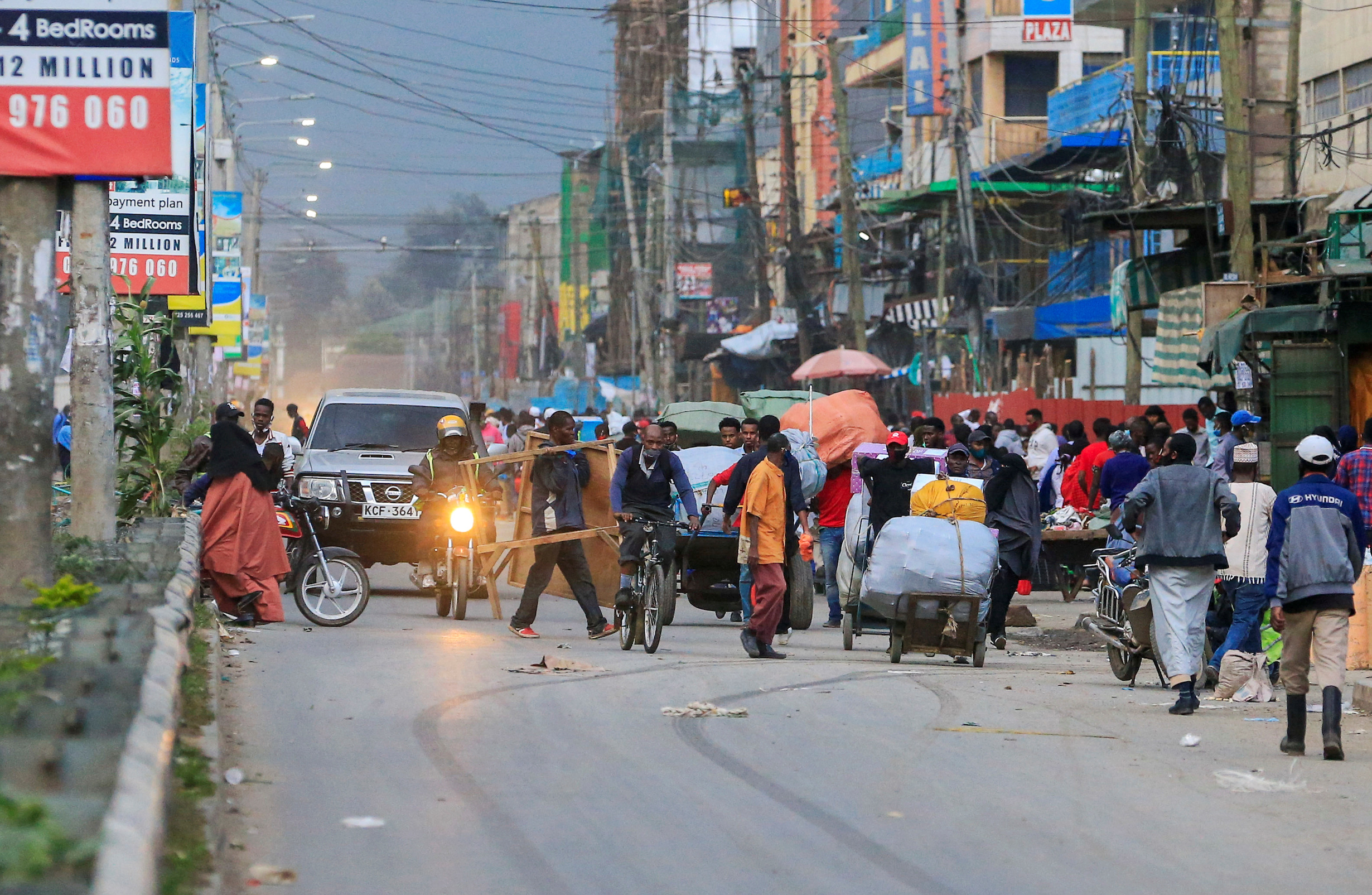
Kenya’s small businesses strive to weather COVID-19 effects
The majority of small businesses in Kenya have weathered the threat of closure that hangs over them following the outbreak of COVID-19 in the east African nation.

The businesses are once again thriving, with operators having put behind them the fear of closing down, which arose following the constraints brought about by the disease.
The constraints included restriction of movement in and out of the capital Nairobi and stay-at-home measures that saw most office workers remain at home.
But business is looking up after most of the measures have either been loosened or done away with all-together as Kenya fights the disease.
Exports and imports for most businesses are flowing in and out once again in good quantities that are supporting trade.
Some of the business operators in the east African nation who have overcome the fear of closure due to the pandemic include cosmetic sellers, second-hand clothes traders, car dealers, eateries and restaurants, public transport vehicle operators, furniture makers and farms growing crops for exports.
“I am optimistic that the tough period is behind us and what remains now is for us to find strategies to fight off the disease as we conduct our businesses,” Moses Mugo, who runs a construction material shop in Kitengela, south of Nairobi, said on Thursday.
A good number of products he sells are imported from China including water taps, sanitary wares, doors and other house fittings.
“In May, we were facing a crisis because our stocks were down and there were little imports coming in but things are much better now,” he said, adding customer flow has also improved.
From making sales of less than 10,000 shillings (about 96 U.S. dollars) a day in early April, Mugo said business has returned to almost its peak.
“Right now we are supplying materials to two construction sites, which was not possible in March and April because people had stopped projects or had adopted a wait and see attitude,” he said.
For eateries, a move to reopen the country has come as a huge boost as office workers return to the central business district for work.
Hundreds of small traders have similarly resumed operations, making the food business thrive once again as the tough times dissipate.
A survey in the capital Nairobi on Thursday showed that not only eateries are flourishing but also beauty shops.
At Best Lady, a popular beauty shop in the capital Nairobi, dozens of women queued at the Moi Avenue branch to buy various items.
In the past months, one would hardly find a queue at the shop as the disease took a toll on the beauty industry, with people avoiding hair care facilities for fear of the disease.
And so was the case for most small businesses in downtown Nairobi, where hundreds of them operate to sell all kinds of items.
“Customers are back,” said salonist Gloria Achieng on the phone. “I can confidently say that things are not that bad. We suffered but I believe the worst is now behind us even as the disease spreads in the community. People know measures to contain it,” she said.
For public transport vehicle operators commonly known as matatus in Kenya, the return to work by hundreds of workers amid COVID-19 measures has seen them have more than enough people to ferry to and from the residential areas.
“We carry half the capacity in our vehicles to enhance social distancing, which has seen more people in need of our services unlike previous months. Things are much better,” said Patrick Kuria, a conductor with Rembo Shuttle.
In a bid to fight the disease, every small business in Kenya, from shopkeepers to mobile money, grain and tailoring stores, have taken measures to curb COVID-19, which include installing handwashing points at the entrance.






